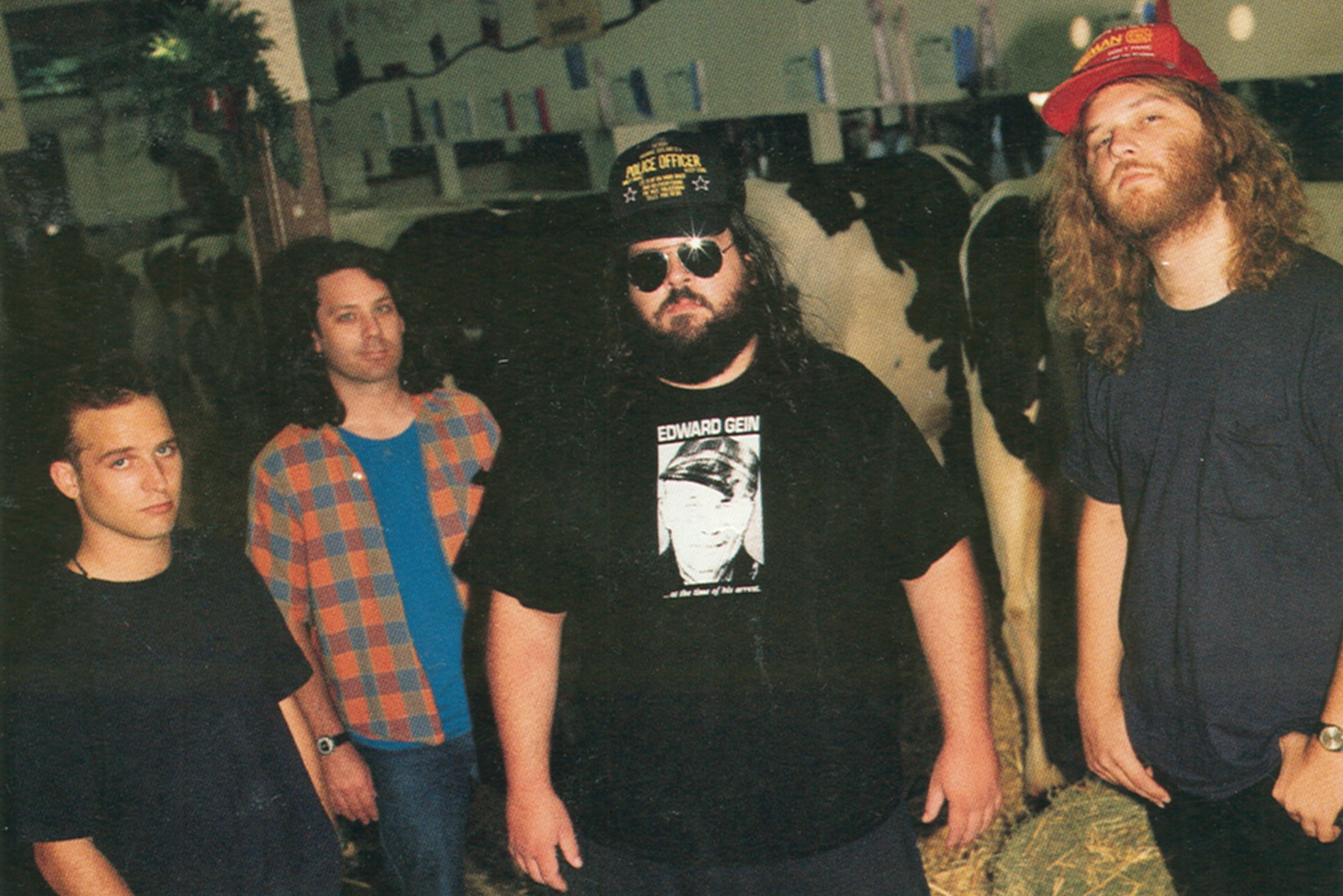If you pictured a band being chased down the streets of London by a gang of paparazzi on motorbikes, it probably wouldn’t be The Gossip, the danceable post-punk trio from Olympia who, despite their name, aren’t exactly tabloid magnets. But that’s exactly what happened in 2007 when their song “Standing in the Way of Control” was used in the ads for a then-new British teen drama called Skins, making the band an overnight sensation overseas and surprising everyone in the process, especially their manager Portia Sabin. “It was so surreal that it was hard to take seriously,” she said. “Literally 10 days ago, those same dudes were just staring at us from across the street doing nothing.”
The experience of managing The Gossip, who got their start on Olympia/Portland’s venerable indie label Kill Rock Stars, proved to Sabin that in the music business anything was possible with a bit of talent, hard work, and luck—the three ingredients, she says, for breaking out of the underground. Sabin hopes to replicate some of that success in her latest role as head honcho at KRS, currently in its third decade.
Founded in 1991, the label built its brand on the back of the ’90s riot-grrrl movement with bands like Bikini Kill and Bratmobile, who pioneered an underground feminist movement rooted in punk-rock ideals. KRS generated lots of press in its early days, but quickly outgrew the riot-grrrl tag, just as Sub Pop has long since shed its rep as a grunge label in the wake of its many post-Nirvana successes. Since then, KRS has given the world the sensitive folk songs of Elliott Smith, Sleater-Kinney’s raging indie rock, and the lush chamber pop of the Decemberists, who provided the label with some of its best years financially, selling nearly a million copies total of the three records they released with the label—Her Majesty the Decemberists, Picaresque, and Castaways and Cutouts—before signing with Capitol in 2005.
In the half-decade since the Decemberists’ departure, however, the music landscape has continued its sea change, forcing KRS to shift gears. When founder Slim Moon took a job at Nonesuch Records in 2007, he asked Sabin, his wife, to put out the year’s remaining releases and close up shop—for good. But Sabin couldn’t do it. “It was so much fun,” she said. “I didn’t want to stop.”
Instead she kept KRS alive and slowly began to make changes: moving the label’s headquarters to a new office in southeast Portland, outsourcing its mail-order business to Kansas, and hiring some digital-music gurus as consultants. “50 percent or more of our sales are now digital,” she said. “Yet nobody on my staff has any experience or expertise in digital marketing and sales. You have to change with the times. Any business would do that.”
The industry’s continuing evolution also meant letting some longtime employees go, like Maggie Vail, a 17-year veteran who started in the mailroom and eventually became the label’s vice president, signing Erase Errata, Mika Miko, and others. When Vail started at KRS in 1994 as a fill-in for her sister Tobi, a member of Bikini Kill who worked in the mailroom but was heading out on tour, it was a completely different place—it didn’t even have computers. Despite being shown the door, Vail has fond memories of her tenure. “It was an honor to be a part of something I believed in so much,” she said. “I don’t think many people get to have their dream job handed to them when they’re 19. I realize how lucky I was.”
Though Sabin has been shrewd at cutting costs and managing overhead, she feels out of touch from certain aspects of the business that she thinks will help it thrive. “I’m 40 years old,” she said. “I’m not out there like a 20-year-old would be. I don’t know what the hell the kids are doing. But somebody does. So why shouldn’t I hire those people to help us out?”
One band that KRS hopes can help move it into the future is Brooklyn’s Milagres, who released their KRS debut, Glowing Mouth, in September. “They’re kind of a departure for us,” Sabin admitted, “because one thing Kill Rock Stars has not been particularly known for is bands with all dudes in them. Which is funny, because if you think about it, all of our successful bands have had at least one woman in them.”
Milagres singer Kyle Wilson says his band’s five-guy lineup didn’t concern him when signing to the label. “I get the impression that Kill Rock Stars likes to surprise people,” he said. “They’ve also signed artists over the years that have had so much potential to go beyond their niche, like Elliott Smith or Deerhoof or Decemberists.” But it was the label’s reputation as a home for hardworking bands with serious integrity that made the decision to sign a no-brainer. “I love Kill Rock Stars,” he said. “I’ve been a fan of their roster—and what they represent—for a really long time.”
When Milagres played Seattle on a recent tour, they also stopped by KEXP for a live in-studio performance. The band has been on the station’s radar ever since John Richards began to champion them on his morning show. Sabin hopes that the KEXP performance is the beginning of a long, steady climb for the group, but she knows KRS has to work just as hard as the band to move things forward. “I think Merge really raises the bar for all of us with the Arcade Fire, because why shouldn’t an indie label do just as good a job for a band as a major? They won a Grammy award.”
The label boasts several acts that are helping to define its third decade, including Portland pop-punks the Thermals, the gentle folk of Horse Feathers, and indie rockers Thao with The Get Down Stay Down. Sabin says that despite all the changes the music business has weathered over the past decade, there is still a steady stream of bands looking for a home: “The supply side of bands who want to make music and be on labels is just as strong today as it always has been.”
Vail echoes that sentiment. “It almost feels like it did in the early ’90s, where people were running labels not to make money but to document music that they loved,” she said. “I think it’s important to cultivate a real identity and to have deep relationships with your artists and your fans. Don’t think of them as consumers—they are peers and friends.”








